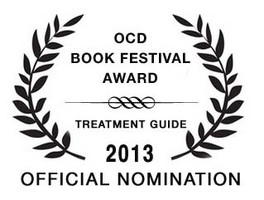
Body Dysmorphic Disorder
Symptoms of BDD:
BDD is a disorder involving recurrent obsessions and compulsions about one's physical appearance. Obsessions are persistent ideas, thoughts, impulses, or images that are experienced as intrusive and inappropriate and that cause marked anxiety or distress. BDD fears vary in their content of disturbing thoughts. People with BDD worry about parts of their body and inaccurately perceive themselves as ugly or abnormal. Compulsions are repetitive behaviors or mental acts meant to prevent or reduce anxiety or distress. Common examples include excessive grooming, checking the body in mirrors, comparing their body to others, touching the disliked area, hiding the area and frequently changing clothes. BDD interferes with daily life activities, is time-consuming, and creates high emotional distress.
Treatment of BDD:
BDD is a very treatable illness when individuals are receiving the most advanced treatment called Exposure and Response Prevention (ERP). Studies show that ERP is the most effective treatment, the first line of intervention for BDD, and has the lowest rate of relapse. ERP helps individuals with BDD develop new ways of coping with obsessions to dramatically reduce the frequency and intensity of obsessions, while eliminating the need for compulsions and avoidance. ERP involves facing actual situations as well as imagined situations (e.g., imaginal exposures), approaching least-to-most distressing situations in a systematic, organized manner.
Examples of therapy goals for treating BDD:
- Step-by-step guide based on your individual manifestation of BDD.
- Identifying triggers for obsessive thinking and ritualizing.
- Understand BDD feelings, urges, and behaviors to help change problematic BDD thoughts and behaviors.
- Exposure/Response Prevention Therapy-In vivo and imaginal exposure to learn to face fears or discomfort.
- Learning to break the cycle of fear and endless rituals.
- Reducing avoidance behaviors and help to feel more comfortable in social situations.
- Cognitive therapy to replace exaggerated, fearful thinking with more realistic and healthy thinking.
- Step-by-step coping tools and problem-solving strategies.
- Develop coping strategies to manage stressful situations and decrease depression and anxiety.
- Family education.
- Relapse prevention strategies.



